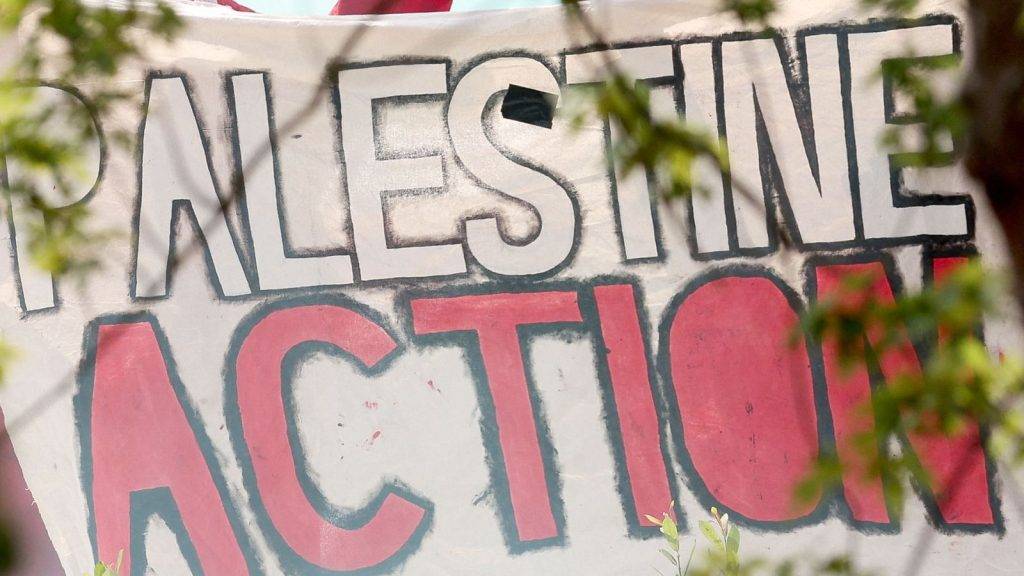Cliff Notes
-
The High Court in London has allowed Palestine Action’s judicial review, contesting the government’s classification of the group as a terrorist organisation under anti-terror laws.
-
Key arguments to be examined include the lack of consultation with Palestine Action prior to the ban and potential infringements on freedoms of expression and assembly.
-
Palestine Action was banned following accusations of causing significant property damage; over 100 arrests have occurred since, raising concerns about the implications for civil liberties.
Palestine Action’s bid for judicial review granted after MPs banned group | UK News
.
Palestine Action has won its application for a judicial review after MPs voted to ban it as a terrorist group.
The High Court in London ruled on Wednesday that several of the grounds that Palestine Action presented to the court as to why the government’s actions were unreasonable were upheld.
Palestine Action’s co-founder Huda Ammori made a bid to challenge Home Secretary Yvette Cooper’s decision to proscribe the group under anti-terror laws.
Judge Mr Justice Chamberlain said he had decided that two parts of the arguments on Ms Ammori’s behalf were “reasonably arguable”.
He said one of the arguments that will go on to a full legal challenge was regarding whether the home secretary should have consulted Palestine Action before banning the group.
Another was due to its impact on freedom of expression and freedom of assembly.
Mr Justice Chamberlain refused to allow Ms Ammori to challenge the decision on several other grounds.
They included a claim the home secretary failed to gather sufficient information on Palestine Action’s activities or the impact of the proscription on people associated with it.
He also refused to allow Ms Ammori to argue that Ms Cooper breached her duty under the Equality Act.
Palestine Action was proscribed under the Terrorism Act 2000 at the start of the month, after MPs overwhelmingly voted in favour of adding the protest group to the list of banned organisations with the likes of National Action, al Qaeda, ISIS and Hezbollah.
The decision made membership of, or support for, the direct action group a criminal offence punishable by up to 14 years in prison.
Even wearing a T-shirt or badge with the group’s name on attracts a maximum six-month sentence.
The home secretary announced plans to proscribe the group after two Voyager aircraft were allegedly damaged at RAF Brize Norton in Oxfordshire on 20 June, which police said caused around £7m worth of damage.
Since the order came into effect on 5 July, more than 100 people have been arrested for demonstrating in support of the group.
Following the ruling, lawyers for Ms Ammori made a fresh bid for a temporary block on the ban on Palestine Action.
Her lawyers had previously told the High Court the decision was “so extreme as to render the UK an international outlier”.
Raza Husain KC said: “We say the proscription of Palestine Action is repugnant to the tradition of the common law and contrary to the ECHR [European Convention on Human Rights].”
The UN’s high commissioner for human rights Volker Turk previously called the proscription order a “disturbing misuse” of counter-terror laws.
The Home Office is defending the decision.
Sir James Eadie KC, for the department, said in written submissions that by causing serious damage to property, Palestine Action was “squarely” within part of the terrorism laws used in proscription.
He said: “There is no credible basis on which it can be asserted that the purpose of this activity is not designed to influence the government, or to intimidate the public or a section of the public, and for the purpose of advancing a political, religious, racial or ideological cause.”
‘We will not stop defending fundamental rights’
After the ruling, Ms Ammori said it “demonstrates the significance of this case for freedoms of speech, expression and assembly and rights to natural justice in our country and the rule of law itself”.
“We will not stop defending fundamental rights to free speech and expression in our country and supporting Palestinian people against a genocide being livestreamed before our eyes,” she added.
Responding to the ruling, Greenpeace UK’s co-executive director Areeba Hamid said: “Protests, even when they are disruptive or inconvenient, are absolutely not the same thing as terrorism.
“We support this decision and hope the judicial review will reveal this proscription order for the sinister and anti-democratic move it is.”
Green Party peer, Baroness Jones of Moulsecoomb, who moved a motion to “regret” the proscription order in the Lords earlier this month, said: “Spraying paint on refuelling planes that campaigners believe are used to help the ethnic cleansing in Gaza is not terrorism.
“It’s criminal damage, for which we already have laws.”


